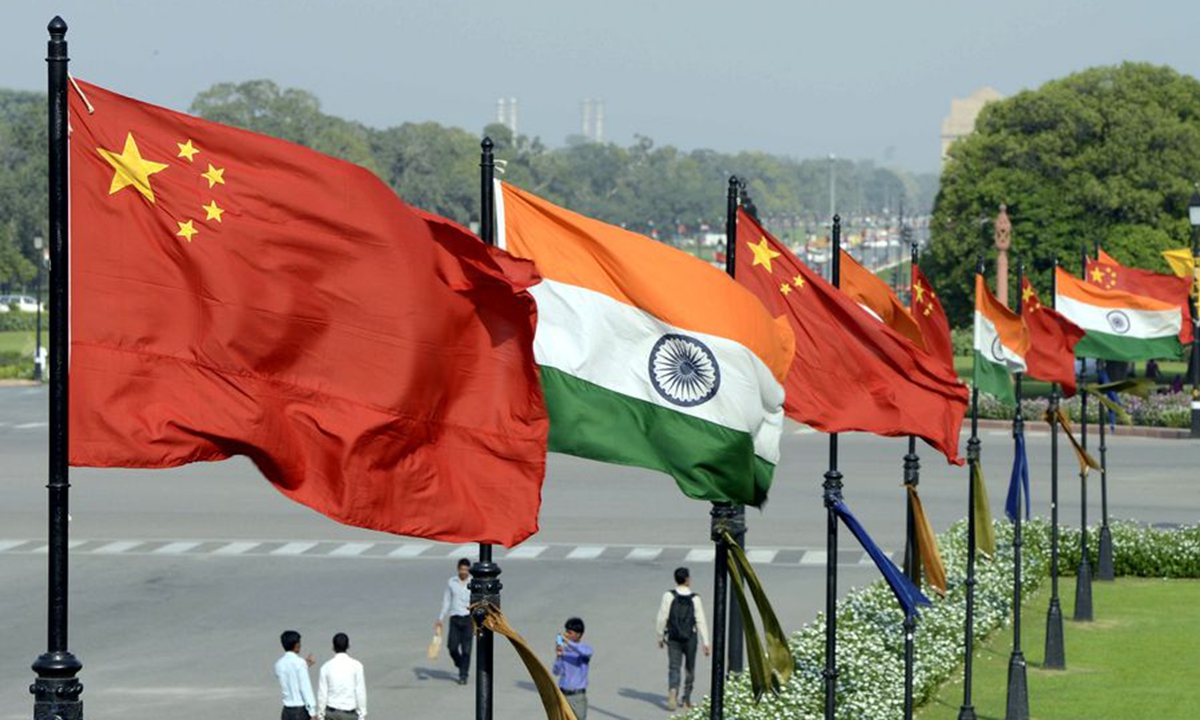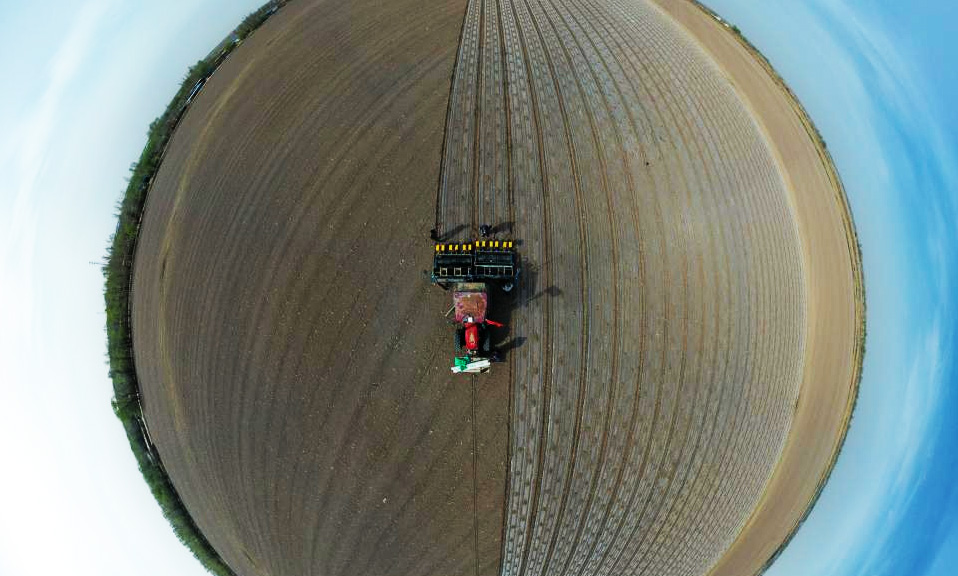India opens Raisina Dialogue to expand global influence; topics show balancing between China and West

China India Photo: Xinhua
Amid the Russia-Ukraine conflict, India on Monday kicked off its annual conference on geopolitics and geoeconomics, Raisina Dialogue, with Chinese analysts saying that India is aiming to further expand its global influence and status since it has benefited both diplomatically and economically from its independent position on the conflict in Europe.
The dialogue was opened by Indian Prime Minister Narendra Modi with EU Commission President Ursula von der Leyen as the chief guest, during her first official visit to India following British Prime Minister Boris Johnson's India visit last week.
According to the Indian Ministry of External Affairs, the three-day Raisina Dialogue has around 100 sessions with more than 200 speakers from 90 countries and regions.
Qian Feng, director of the research department at the National Strategy Institute at Tsinghua University, told the Global Times on Monday that India is attempting to show its international status by holding the dialogue and further expand its global influence, as both Russia and the West have been wooing India on the Russia-Ukraine conflict.
Europe attached a growing importance to India when world politics and economy were deeply impacted by the Russia-Ukraine conflict, and Europe wanted to pressure India over its position on Russian sanctions, but did not want to lose India from their "democracy camp," Qian said, noting that after US pressure on India failed, Europe wooed India with trade, climate and security cooperation.
According to the website of the Raisina Dialogue, hosted by Delhi-based think tank Observer Research Foundation in partnership with the Indian Ministry of External Affairs, the Dialogue is India's premier conference on geopolitics and geoeconomics committed to addressing the most challenging issues facing the global community.
Among the more than 200 speakers, there was no representative from the Chinese mainland. But the dialogue set up several sessions on China.
On Tuesday, a session on Europe and the Indo-Pacific is expected to discuss Europe's relations with China, especially amid the Russia-Ukraine conflict.
And another session named "Dragon's Fire: Deciphering China after Ukraine" claimed "as the plains of Ukraine turn into a battlefield, few players have more at stake than China." And it set up discussion topics on China-Russia relations and China's choices in the Russia-Ukraine conflict.
Qian explained that it's normal that Chinese mainland representatives did not attend the dialogue this year considering the COVID-19 pandemic, and several China-related sessions during the dialogue reflected China's growing global influence, and China-related topics are unavoidable in current geopolitical studies.
A Beijing-based military expert who attended a previous Raisina Dialogue told the Global Times on condition of anonymity that China-related topics at the dialogue showed that India seeks to balance its relations with the West, Russia and China. But India has its own perspective on global affairs in order to show its global status, which does not necessarily follow the US and the West, the expert said.
Monday's dialogue was the seventh since 2016. Analysts said that Chinese scholars and politicians have attended the past dialogues, during which representatives from India and some Western countries made groundless accusations on China's internal affairs and hyped China's military strength in the South China Sea, and these accusations were strongly refuted by Chinese representatives.
Qian predicted that there will be provocative remarks about China during the three-day dialogue, and such provocations may be more aggressive without Chinese presence.
The Raisina Dialogue invited Ming-Shih Shen, a scholar from a Taiwan-based defense institute, as one of the speakers. He is expected to participate in a discussion about how US allies make sense of a world without American hegemony with a "China challenge" looming, according to the dialogue's website.
Analysts said on developing ties with the island of Taiwan, the Indian government has in general honored its commitment to the one-China policy, but India has been strengthening its unofficial relations with the island of Taiwan.
Some Indian scholars have since called on its government to make a diplomatic breakthrough with the island of Taiwan to contain China, which China should be alerted to, Qian said.
Photos
 World Book Day: Let's read together
World Book Day: Let's read together Rare silver pheasants flock together in greater numbers to forage at Yishan nature reserve in east China's Jiangxi
Rare silver pheasants flock together in greater numbers to forage at Yishan nature reserve in east China's Jiangxi Young artist takes up brush to create lifelike paintings expressing mankind and nature’s harmonious co-existence
Young artist takes up brush to create lifelike paintings expressing mankind and nature’s harmonious co-existence Cutton farming in full swing in China's Xinjiang
Cutton farming in full swing in China's Xinjiang
Related Stories
- Fishing event held at Digholi Lake in India
- Biden plans Japan visit to coordinate Indo-Pacific, but ‘India’s reluctance to sway on Ukraine weakens QUAD’
- India unlikely to serve as Washington’s pawn over Ukraine despite Biden-Modi meeting: expert
- Indian Air Force blames officials for missile that accidentally landed in Pakistan
- India reports 2nd case of Omicron XE variant of COVID-19
Copyright © 2022 People's Daily Online. All Rights Reserved.






